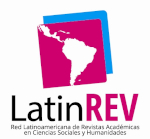INTERNATIONAL INSTITUTIONS AND WELL-BEING: contributions of Classical Utilitarian THOUGHT to the Functionalist Theory of International Relations
DOI:
https://doi.org/10.47180/omij.v5i1.296Keywords:
International Relations Theory; Functionalism; Classical Utilitarianism; International Institutions.Abstract
This article aims to explore the ontological influence of the assumptions and concepts of classical utilitarianism on the functionalist theory of International Relations (IR). An exploratory essay discussion is proposed here, with the heuristic single case study model as the research strategy through non-systematic Literature Review, structured in three moments. At first, classical utilitarianism is presented as an important and influential ethical-philosophical school of thought in the Anglophone world in the 19th century. Subsequently, the functionalist theory of IR is contextualized as a heterodox current in the studies of cooperation and regional integration. Finally, the presence of utilitarian definitions and assumptions in the conceptual framework of the functionalist theory of IR is discussed. It is argued, therefore, that the influence of classical utilitarian thought on the functionalist perspective of IR corresponds to two key assumptions: (i) emphasis on the maximum well-being liquidity of national political communities in areas or cross-cutting issues addressed by institutionalized cooperation; (ii) and the technocratic and functional instrumentalization of international institutions as the main means to achieve a high level of utility.
Downloads
References
AUDARD, C. Utilitarismo. In: CANTO-SPERLBER, C. Dicionário de ética e filosofia moral. V. 2., São Leopoldo: Editora UNISINOS, 2003, p. 737-744.
BENTHAM, Jeremy. Ensaio IV: um plano para uma paz universal e perpétua / essay iv - a plan for an universal and perpetual peace. Brazilian Journal Of International Relations, [S.L.], v. 1, n. 1, p. 164-192, 31 dez. 1979. Disponível em: https://revistas.marilia.unesp.br/index.php/bjir/article/view/1832. Acesso em: 21 jun. 2022
BENTHAM, Jeremy. Uma introdução aos princípios da moral e da legislação. São Paulo: Abril Cultural, 1979.
BERNARDO, Glaucia Julião. Organizações internacionais como agentes de transferência e difusão de políticas públicas. Conjuntura Global, [S.L.], v. 5, n. 2, p. 233-252, 22 nov. 2016. Universidade Federal do Paraná. http://dx.doi.org/10.5380/cg.v5i2.49344. Disponível em: https://revistas.ufpr.br/conjgloblal/article/view/49344/29539. Acesso em: 21 jun. 2022.
CORREA, Lara Cruz. Utilitarismo e moralidade: considerações sobre o indivíduo e o estado. Revista Brasileira de Ciências Sociais, [S.L.], v. 27, n. 79, p. 173-186, jun. 2012. Disponível em: https://doi.org/10.1590/S0102-69092012000200011. Acesso em: 21 jun. 2022.
CRAVINHO, João Gomes. Visões de Mundo. Lisboa: Imprensa de Ciências Sociais, 2006.
DEUTSCH, Karl. Análise das Relações Internacionais. Brasília: Universidade de Brasília, 1978.
DOUGHERTY, James; PFALTZGRAFF, Robert L. Jr.. Contending Theories of International Relations: A Comprehensive Survey. New York, Longman. 1997.
ELLIS, Anthony. Utilitarianism and International Ethics. In: NARDIN, Terry; MAPEL, David. R.. Traditions of International Ethics. Cambrigde: Cambridge University Press, 1992, p. 158-172.
GUEDES, Marcos, FAUSTINO, Cristian V. David Mitrany: Funcionalismo e Integração Internacional. IN: LIMA, Marcos Costa et al. Teóricos das Relações Internacionais. São Paulo, Hucitec, 2012, p. 112-124.
HAAS, Ernst. Beyond The Nation-State: Functionalism and International. Stanford: Stanford University Press, 1968.
HERZ, Mônica; HOFFMANN, Andrea Ribeiro. Organizações internacionais: história e práticas. Rio de Janeiro: Elsevier, 2004.
LALANDE, A. Vocabulário técnico e crítico da filosofia. São Paulo: Editora Martins Fontes, 1999.
MAXWELL, PUC- Rio. Organizações Internacionais: agentes que se auto interpretam?. 2022. Disponível em: https://www.maxwell.vrac.puc-rio.br/7681/7681_3.PDF. Acesso em: 24 jun. 2023.
MALAMUD, Andrés. Conceptos, teorías y debates sobre la integración regional / Concepts, theories and debates on regional integration. Marília: Brazilian Journal Of International Relations, v. 1, n. 3, p. 366-389, 31 dez. 2012.
MILL, J. S. A liberdade – Utilitarismo. São Paulo: Martins Fontes, 2000
MITRANY, David. A Working Peace System. Chicago: Quadrangle Books, 1966.
MULGAN, T. Utilitarismo. Petrópolis: Editora Vozes, 2012.
PELUSO, L. A. Utilitarismo e ação social. In: PELUSO, L. A. (Org.). Ética e utilitarismo. Campinas: Ed. Alínea, 1998.
RAMOS, Cláudia; MAIOR, Paulo Vila. Perspectivas teóricas sobre a integração europeia. Relações Internacionais Dois Séculos de História, S.L, v. 1, n. 16, p. 103-116, jun. 2007. Disponível em: http://ipri.pt/images/publicacoes/revista_ri/pdf/ri16/RI16_08CRamosPVMaior.pdf. Acesso em: 22 jun. 2022.
RAWLS, John. Uma teoria da justiça. São Paulo: Martins Fontes, 2000.
ROCHA, Acílio da Silva Estanqueiro. O ideal da paz e o utilitarismo: o europeísmo de Bentham. Barcelona: Universidade de Barcelona, 2002.
TORRES, André Castelo Branco Alves. O utilitarismo é um asceticismo. 2017. 191 f. Tese (Doutorado) - Curso de Filosofia, Universidade Federal de Pernambuco, Recife, 2017. Disponível em: https://repositorio.ufpe.br/handle/123456789/25656. Acesso em: 21 jun. 2022.
Downloads
Published
How to Cite
Issue
Section
License
Copyright (c) 2024 Open Minds International Journal

This work is licensed under a Creative Commons Attribution-NonCommercial-NoDerivatives 4.0 International License.
The authors declare that any work submitted, if accepted, will not be published elsewhere, in English or in any other language, and even electronically, unless it expressly mentions that the work was originally published in the Journal.













